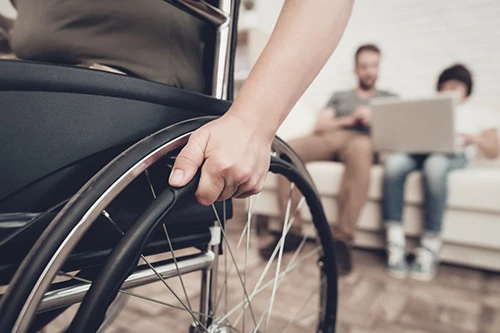Social media, such as Reddit, Instagram, Facebook, Snapchat, and Twitter, has been a major boon to not only the world but to personal lives. As of 2019, 79 percent of the U.S. population, according to Statista, has some form of social media profile.
Unfortunately, social media is often considered to be a double-edged sword. Many negative incidents have resulted from the usage of these sites: weaponized posts, companies spying, addiction, termination of employees, and failed lawsuits.
If you’ve filed a personal injury claim, then you should be careful of your social media usage. Here are some ways of how social media can affect your personal injury lawsuit.
Riskiest social media sites
Instagram – Instagram is home to 1 billion monthly active users (as of June 2018) (Hubspot, 2019), making it one of the fastest-growing social media sides on the globe. Now, it’s on the radar of insurers and attorneys.
Twitter – Though the number of daily active users – 126 million (Q1 2019) as reported by the Washington Post – is dwarfed by Facebook’s and Snapchat’s numbers, it is still a gargantuan amount and many users have their own profile to conduct business, whether it is to promote their services or to do some cyber sleuthing.
Facebook – While Facebook has had its issues over the past few years, it remains a mammoth corporation. Because of its status, it remains a ground rife with personal videos, posts, and comments, which can spell doom and gloom for your case.
How social media can affect your lawsuit
Locations
Locations, if not turned off, can spell a lot of trouble for social media users, especially if they’re amid a personal injury lawsuit. Say you’ve broken your leg due to a car accident. If you post a typical comment or photo, the post itself may reveal your location to be in Aspen, which could serve as ammo for the defendant’s attorney. It begs the question: How injured are you if you are able to go skiing?
Furthermore, if you check in at an event posted on social media, the check in may be used as evidence against you. For example, you have a dislocated knee but still attended a dance club. You check in said dance club, with the intention of only speaking to strangers and having drinks, but this can be deemed evidence against you because you’re at a dance club, where patrons are often expected to dance.
Photos and Videos
Photos and videos tell a story, but they can tell it with many potential angles. For instance, you’ve recently filed a personal injury lawsuit for an accident that has broken both your arms. One day, you and your sister have decided to go to the swimming pool to watch your niece and nephew play in the pool. Unfortunately, any photos taken during the event can be used as evidence if posted online. If you post a photo your sister’s taken (or have someone post the photo under your account) on social media of the kids playing in the pool, the attorney could wonder if you, too, have been swimming in the pool or if you can take the photo yourself!
Testimony Contradiction
You provide the story of the accident to your attorney, the court, or your insurer, down to the last detail. Later, you post a similar story of the accident via social media that lightly exaggerates a few details. Well, those details can cost you your entire case – and thus any compensation – in exchange for a few likes and internet points, just because the facts you posted aren’t accurate.
Comments from Your Network
While you may make no comments regarding your injury, where you are, or what you’re doing, your family and friends might, which the defendant’s attorney can target and use against you.
Overall, a lot of the things you post, whether they are an exaggerated story of your accident, a video of you playing a sport, or a check-in at a martial arts club, can compromise your entire case.
So, the best advice to take into consideration is to simply not post on social media while your case is ongoing. You could potentially believe that you won’t post anything that would hurt your case, but all it takes is one slip up that you are unaware of. Furthermore, setting your social media profile’s status to “friends only” or private won’t work either, as courts have ruled (American Bar Association, 2018) that no social media is subject to a “privacy” privilege. Stay responsible!


